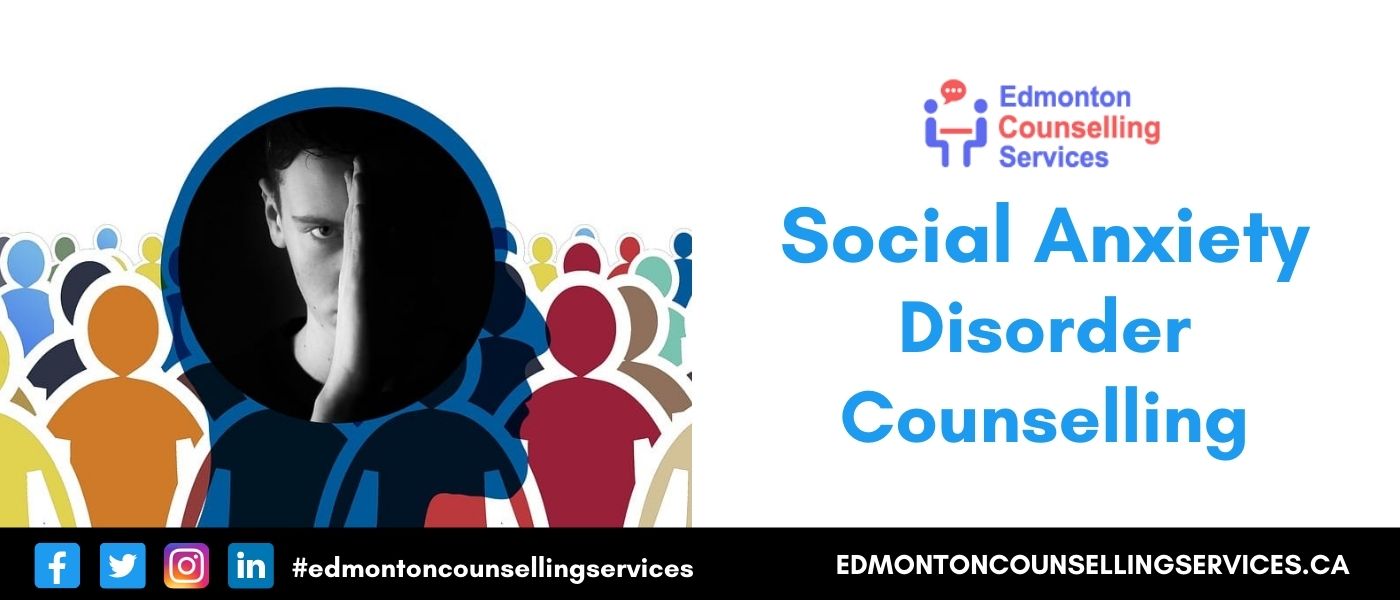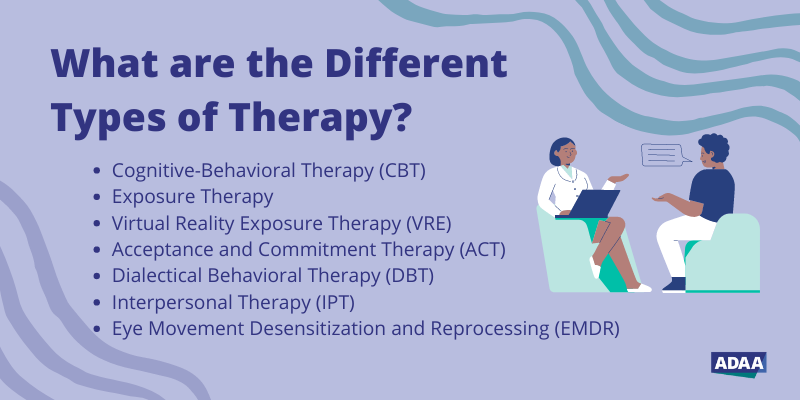Individual counselling for anxiety sessions that truly help
Individual counselling for anxiety sessions that truly help
Blog Article
Checking Out Different Methods in Therapy for Anxiety Condition for Long Lasting Modification
When taking on anxiety disorders, it's vital to explore a selection of counseling strategies. Each approach offers one-of-a-kind understandings and tools to aid you handle your signs and symptoms properly. You could find that integrating methods can yield the most effective outcomes. Understanding the subtleties of these strategies is key to promoting long-term modification. Suppose the appropriate combination could launch a brand-new level of psychological well-being for you?
Understanding Anxiety Conditions: A Quick Summary
Anxiety conditions, which impact numerous individuals worldwide, can greatly impact day-to-day life. You could experience frustrating sensations of fear or fret that appear unmanageable. These feelings can bring about physical signs and symptoms like a racing heart, sweating, or even wooziness. Typical sorts of stress and anxiety conditions include generalised anxiousness problem, panic problem, and social anxiety disorder. Each has unique indications, however they all share a propensity to interrupt your routine and relationships.Understanding the source of your anxiety is crucial. It may come from genes, brain chemistry, or life experiences. Identifying your triggers can assist you manage your responses much better. It is very important to keep in mind that you're not the only one in this struggle. Several individuals encounter comparable challenges, and looking for help is a solid step toward sensation much better. By finding out concerning anxiousness disorders, you're already on the course to understanding and handling your condition better.
Cognitive-Behavioral Therapy: Challenging Adverse Thought Patterns
In Cognitive-Behavioral Therapy, you'll start by determining the unfavorable idea activates that contribute to your anxiety. You'll work on replacing them with even more positive options when you acknowledge these thoughts. Together, you'll build efficient coping approaches to help manage your stress and anxiety in day-to-day circumstances.
Identifying Adverse Idea Triggers

When you come across minutes of distress, acknowledging the details triggers behind your adverse thoughts can be important in managing anxiousness. Begin by paying attention to situations that prompt sensations of fear or worry. Is it a crowded area, an approaching deadline, or a discussion with certain people? Take down these instances in a journal. This will aid you identify patterns in your reasoning. Likewise, notification physical sensations that accompany your negative ideas, like a racing heart or tightness in your breast. By identifying these triggers, you get insight into what's fueling your stress and anxiety. Comprehending these connections is the primary step in challenging those ideas and eventually gaining back control over your psychological reactions.
Changing Thoughts With Positives
Testing negative thought patterns is a crucial action in transforming your mindset and minimizing stress and anxiety. You may usually locate yourself trapped in cycles of self-doubt or tragic reasoning. As opposed to allowing these thoughts determine your feelings, practice replacing them with favorable affirmations or practical choices. When you think, "I can not handle this," move it to, "I can take care of difficulties one action at a time." This straightforward adjustment can substantially impact your psychological state. On a regular basis determining and responding to these negative thoughts aids produce a healthier internal dialogue. Keep in mind, it takes some time and effort, yet consistently practicing this method can bring about enduring change, encouraging you to face stress and anxiety with renewed confidence and durability.
Building Coping Techniques With Each Other
Changing adverse thoughts is just the beginning of taking care of stress and anxiety successfully. To develop long lasting modification, you need to develop coping strategies that empower you. Cognitive-Behavioral Treatment (CBT) helps you determine and test those unhelpful idea patterns. Together, you and your therapist can check out how these ideas impact your feelings and behaviors.Start by creating useful strategies, like journaling or mindfulness exercises, that allow you to challenge anxiousness head-on. When you face your anxieties slowly, you'll learn to respond in a different way.

Mindfulness and Acceptance-Based Approaches: Growing Present-Moment Recognition
As you navigate the intricacies of anxiety, integrating mindfulness and acceptance-based strategies can considerably improve your capacity to grow present-moment awareness. By concentrating on the present moment, you'll locate that you can observe your ideas and sensations without judgment (Counseling services for anxiety). This technique assists you recognize your anxiousness without really feeling bewildered by it.Engaging in mindfulness workouts, such as deep breathing, body scans, or guided meditations, enables you to ground on your own in your existing experience. Acceptance-based methods motivate you to accept your feelings instead than combat versus them. They lose their power over you.Incorporating these techniques right into your daily routine can transform how you respond to anxiety when you accept your sensations. You'll establish resilience and discover to navigate stressful circumstances with better ease. Inevitably, cultivating present-moment awareness lays the structure for lasting modification, empowering you to lead a more satisfying life
Direct Exposure Therapy: Facing Worries Gradually
Exposure therapy aids you challenge your anxieties in a progressive method, making it less overwhelming. You'll discover strategies to face anxiety-provoking scenarios action by step, while also building coping strategies to manage your responses. This method empowers you to take control and reduce anxiety in time.
Gradual Direct Exposure Techniques

When encountering anxiousness, gradually challenging your worries can be an effective way to gain back control. This strategy, called gradual direct exposure, involves slowly exposing yourself to the situations or objects that cause your stress and anxiety. Start with much less intimidating situations and slowly function your way up to even more tough ones. If you're afraid of public speaking, you may begin by speaking in front of a mirror, then advance to sharing ideas with a good friend, and at some point attend to a tiny group. Each action assists desensitize you to the anxiety, building your confidence with time. Keep in mind, it's important to pace on your own and commemorate little victories as you relocate through this procedure, reinforcing your ability to handle anxiety properly.
Building Coping Techniques
Building effective coping approaches is necessary for managing anxiousness, particularly as you face your worries gradually - Counseling services for anxiety. One powerful technique is exposure treatment, where you start by facing your fears in a controlled fashion. Begin with much less frightening scenarios and gradually work your means approximately get more info even more tough situations. This steady exposure helps desensitize you to stress and anxiety activates, making them less overwhelming.Incorporate relaxation strategies, such as deep breathing or mindfulness, to calm your mind throughout direct exposure. Track your development, celebrating small triumphes in the process to enhance your confidence. Bear in mind, it's okay to take your time; the objective isn't perfection however constant improvement. By constructing these methods, you'll encourage on your own to browse anxiety and accept life extra totally
Psychodynamic Therapy: Uncovering Origin Causes of Stress And Anxiety
Psychodynamic treatment checks out the unconscious mind, disclosing the root creates of your anxiety. By analyzing your ideas, feelings, and past experiences, this method aids you uncover underlying disputes and unsettled issues that might add to your current stress and anxiety. You'll deal with a specialist to explore youth experiences, relationships, and emotional patterns that shape your actions today.As you acquire insight into these much deeper layers of your psyche, you'll start to recognize exactly how past events affect your existing behavior. This understanding can bring about catharsis, allowing you to process emotions you may have suppressed.Through the healing connection, you can additionally identify defense reaction that may have established over time, using a more clear course to change. Inevitably, psychodynamic therapy furnishes you with the devices to resolve your stress and anxiety at its core, promoting lasting transformation in your psychological health.
Integrative and Alternative Approaches: Integrating Methods for Greater Efficiency
Incorporating various healing strategies can enhance your journey toward managing anxiousness better. By combining elements from cognitive-behavioral treatment, mindfulness methods, and holistic strategies, you can create a tailored strategy that addresses your one-of-a-kind needs. You may utilize cognitive-behavioral techniques to test negative idea patterns while including mindfulness workouts to ground on your own in the present moment.Additionally, checking out all natural practices such as yoga or reflection can promote relaxation and decrease stress and anxiety symptoms. This blend enables you to create higher self-awareness and resilience.Experimenting with these diverse methods can aid you find what reverberates most with you. Keep in mind, it's concerning locating a harmony that works, instead of adhering to a single method. This integrative strategy not only provides prompt relief however additionally fosters long-term abilities for managing anxiousness, encouraging you to redeem control over your life.
The Duty of Support Solutions: Building Resilience Through Link
While it might seem that taking care of stress and anxiety is a singular journey, having a strong support system can play an important role in your resilience. Surrounding on your own with empathetic friends, household, or support teams creates a risk-free room where you can freely share your experiences and sensations. You remind yourself that you're not alone in this struggle.These connections use support and can offer practical coping methods that have actually functioned for others when you attach with others. It's additionally a possibility to get viewpoint; close friends can aid you see situations differently, decreasing sensations of isolation.Moreover, emotional assistance cultivates a feeling of belonging, which can considerably alleviate stress and anxiety signs and symptoms. By leaning on your support system, you can build strength and tackle obstacles much more successfully. Keep in mind, reaching out for aid signifies toughness, and it can make all the distinction in your journey toward handling anxiety.
Frequently Asked Inquiries
What Are the Usual Signs of Stress And Anxiety Problems?
You could experience uneasyness, fatigue, problem concentrating, irritability, muscular tissue stress, and rest disruptions. Physical signs can consist of rapid heartbeat, sweating, and shivering. Acknowledging these signs early can help you look for proper support and treatment.
How Much Time Does Therapy Normally Last for Anxiousness Disorders?
Therapy for anxiety conditions generally lasts anywhere from a couple of weeks to several months. It really depends on your private demands, progression, and the methods your specialist makes use of to help you handle your anxiousness efficiently.
Can Medicine Be Made Use Of Alongside Therapy for Anxiousness?
Yes, medicine can definitely be used together with treatment for stress and anxiety. Integrating both strategies frequently improves treatment effectiveness, assisting you handle symptoms while exploring underlying issues through counseling (Counseling services for anxiety). Constantly consult your healthcare company for customized suggestions
Are There Self-Help Methods for Taking Care Of Anxiety?
Yes, there are several self-help strategies for taking care of stress and anxiety. You can practice mindfulness, involve in routine exercise, preserve a well balanced diet, establish a regular, and use deep breathing techniques to help reduce stress and anxiety symptoms properly.
Exactly how Do I Know if I Need Professional Aid for Stress And Anxiety?
:max_bytes(150000):strip_icc()/GettyImages-814596226-5f685bb021444e6aba7994e617732302.jpg)
Report this page